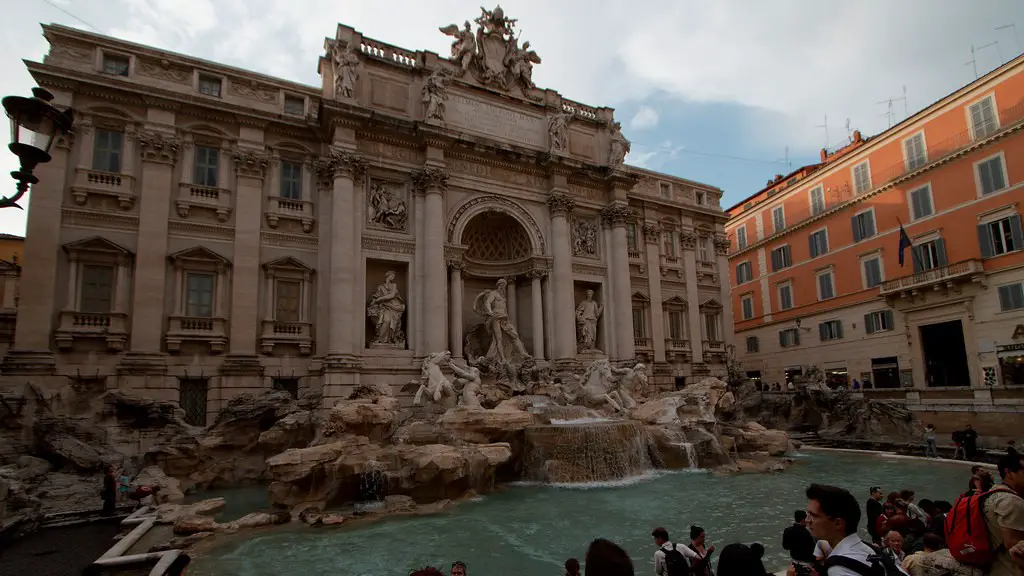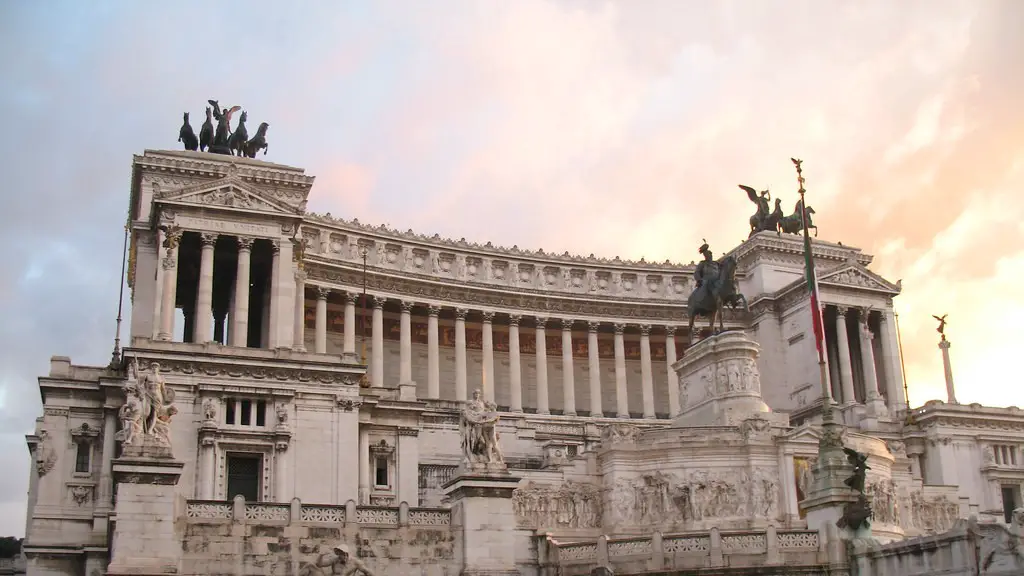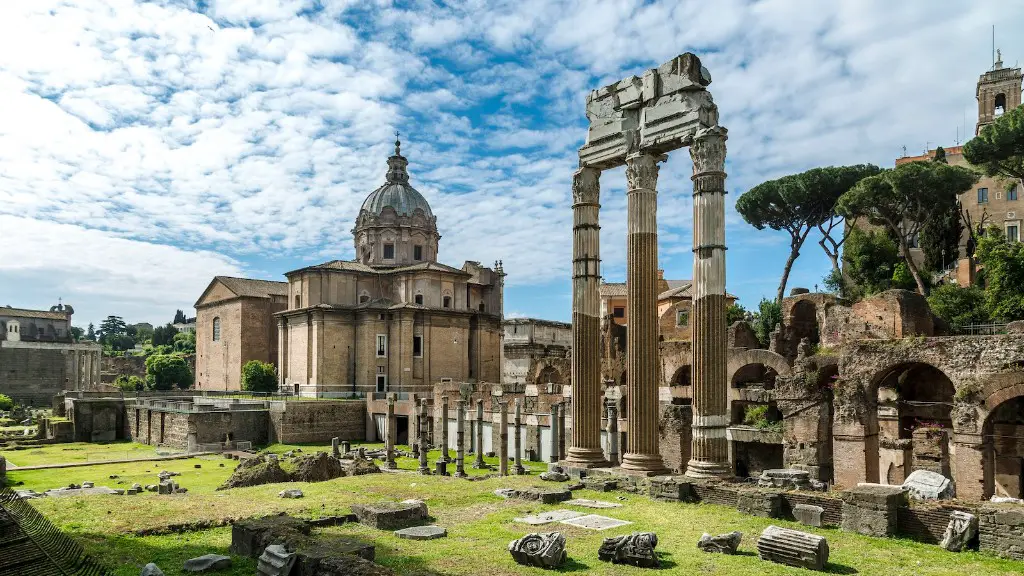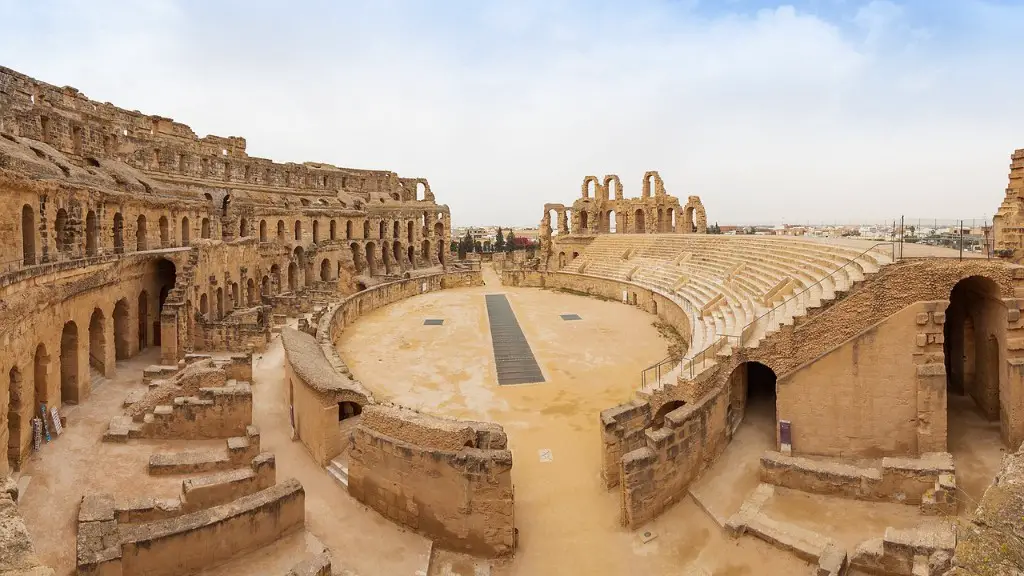When we think of ancient Rome, we usually think of iconic and unforgettable rulers that shaped history. From the first king to the last emperor and from dictators to influential leaders, the names of each ruler are continuously studied and remembered. But who were the first rulers of ancient Rome?
As far as recorded history goes, the first rulers of Rome were a line of seven kings. According to Roman mythology, a mythical figure by the name of Romulus was the very first ruler of Rome. After Romulus, the list was comprised of Titus Tatius, Numa Pompilius, Tullus Hostilius, Ancus Martius, Lucius Tarquinius Priscus, Servius Tullius, and Lucius Tarquinius Superbus, also known as Tarquin the Proud.
These kings had significant and well-documented impacts on Rome when it first started to form its society. King Pittius introduced the first calendar, whilst King Hostilius structured the army and ran successful wartime campaigns. Similarly, King Pompilious had a huge hand in the formation of the political and religious life of Rome. Unfortunately, most of these kings’ contributions were overshadowed by their ruthless warfare for resources and land, often unfounded and senseless.
In 509 BC, the entire monarchy was abolished and a new form of government called the Roman Republic was established. The Republic was led by two consuls, both elected by the people of Rome. This set Rome on a different trajectory and drove a permanent change in its approach to governance. With this Republic in place, Rome was a superpower amongst the Greek powers of it’s time, and eventually became the center of the civilized world.
The Rise of Julius Caesar
When Julius Caesar took power in 49 BC, the Roman Republic underwent a major transformation. Caesar led Rome in an unprecedented expansion campaign and enlarged its reach from the British Isles to North Africa. He also subjugated remote territories and established provinces. This expansion of Rome’s reach was only possible after he defeated some of the most powerful European tribes and curried favor with many others.
It is no surprise that he was one of the most influential figures in ancient Rome. He was praised for introducing major reforms and reorganizing the government. He also completely altered the currency system and reduced taxation. His greatest achievement was the reformation of the calendar, offering us the most accurate and precise calendar that is still in use to this day.
He was also among the first rulers to recognize the benefits of solidifying complex trading networks via alliances. This ultimately granted Rome access to resources from multiple regions. Caesar also made significant reforms on the army, limiting the power of the Senate and turning it into an unquestioned guardian of Roman interests and security.
Augustus as the First Roman Emperor
Following Caesar’s assassination, his adopted son and great-nephew, Augustus, ascended to the throne and became the first Roman emperor—marking the transition from Roman Republic to Roman Empire. Augustus adopted many of Caesar’s strategies and strategies and adapted them to future conditions created by expanding population, political unrest, rising resources, and the spreading of Rome’s influence.
Augustus’ reign was considered a golden age for Rome, as he brought peace and stability to the ravaged country. He also established a civilian police force, making it much easier to enforce law and order. He also doubled the size of Rome’s territories, his most famous win being the Battle of Actium, thus expanding Roman control and unifying much of the Mediterranean basin.
He reorganized the army and recruited dedicated soldiers, increasing its size to unprecedented levels. Augustus also restructured government and extended the law system, making sure that everyone in the country was held accountable for their actions.
Continuation of Imperialism
Augustus was followed by a long line of Roman emperors, each trying to build on the heritage of Augustus. Under their rule, Rome further expanded its reach and became the most powerful nation in the known world by the time of Constantine the Great. During this period, Rome built impressive infrastructure, with cities, monuments, and highways, unified a diverse range of cultures and languages, and was largely guided by the rule of law.
Under their rule, Christianity was spread across the Roman Empire and persecution of Jews was stopped by 410 AD. Imperial rulers also adopted the feudal system, adapting it to their own economic needs. The Roman Empire also created its own unique style of writing, architecture and art, becoming the blueprint of modern civilisation.
The Fall of Ancient Rome
Over the centuries, the empire started to lose its power and disintegrate due to external invasions and internal civil wars. Rome became increasingly divided and its territories were seized, leading to its downfall in the sixth century.
The fall of ancient Rome can be seen as a complex mixture of political, economic, and social issues that all collided to mark the end of one of the most significant empires of antiquity. Expansionism, warfare, unrest, bad leadership, and external damage all played a role in Rome’s eventual downfall.
The Legacy of Ancient Rome
For over a thousand years, ancient Rome left an enduring legacy of art, literature, democracy, and language. All these elements still influence the world today, changing our lives and influencing our culture. Despite the ultimate demise of the Roman Empire, the contributions of its rulers and citizens to the world will always be remembered and appreciated.
The developments that you still see today were created by Rome during its peak—the Olympic games, advances in medicine, engineering, justice, and religion, cultural diversity, and a strong sense of identity can all be tracked back to Rome.
Rome also bequeathed us an example of how an empire could live and rise, and what makes it collapse. Its history allows us to reflect on the mistakes of the past, be more resilient and united, and learn from its example.
Conclusion of Ancient Roman Rulers
The first rulers of Rome were men who left their mark on their society and shaped the nation into what it is known today. From Romulus, the first king and mythical figure, to Julius Caesar, who changed the course of Roman history, to the imperial rulers like Augustus, who brought peace, stability, and unity to the country, each one of these rulers left their individual contributions.
These sovereigns, leaders and rulers are remembered to this day, as their legacy continues to live and have an impact on societies worldwide. Ancient Rome is known as one of the most influential empires of all time, and it is no surprise—to understand why, all one needs to do is to look at the powerful rulers that led it.




